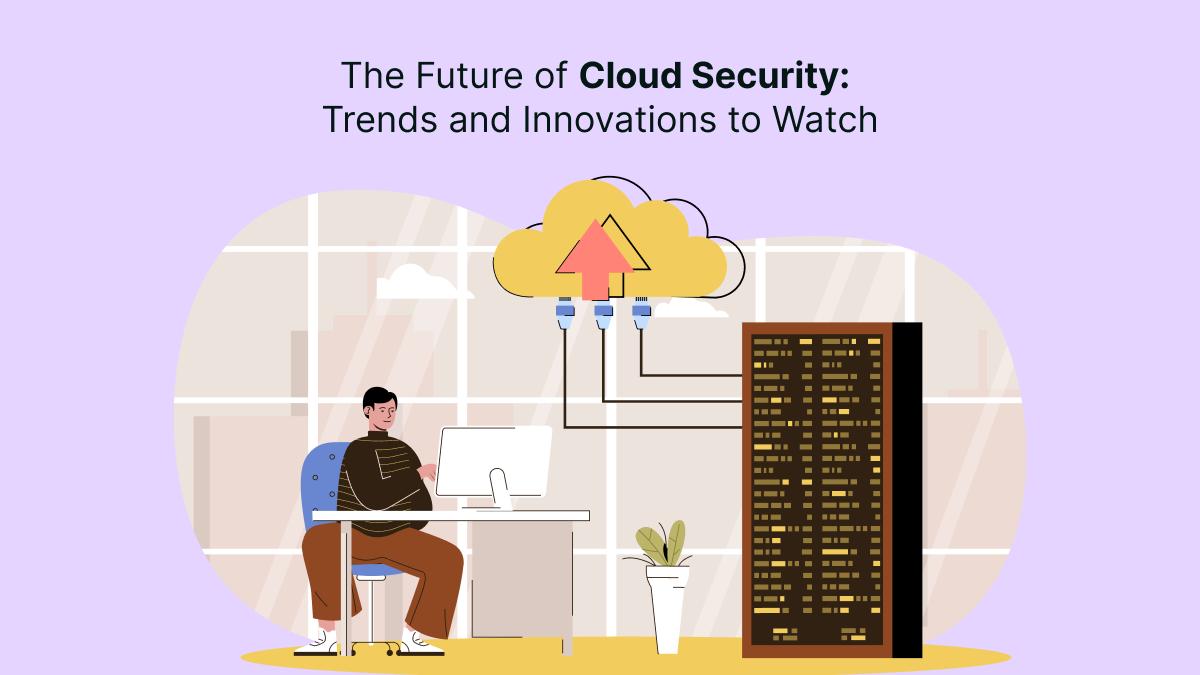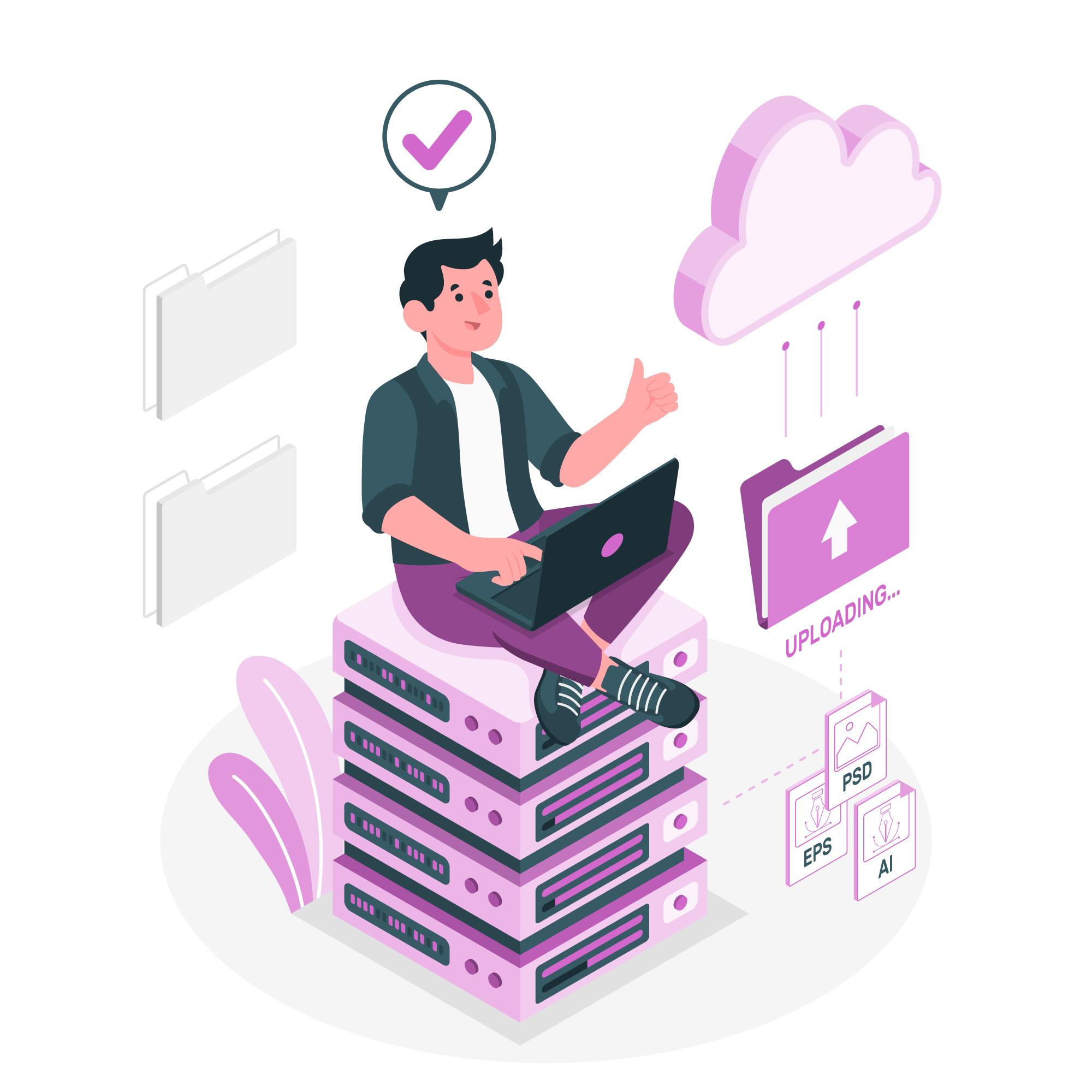7 Essential Cloud Security Tips for Businesses

Cloud computing has become a standard part of business today. It helps companies work faster, store more data, and scale easily. From small startups to large enterprises, everyone uses cloud services for emails, file storage, software, and even development tools.
But with all these benefits comes a big challenge—keeping your data safe. When your business data is stored online, it becomes a target for hackers, data leaks, and accidental errors.
The good news is that strong cloud security doesn’t have to be complicated. With the right habits and tools, you can protect your business and customer data from common threats.
Here are 7 essential cloud security tips that every business should follow.
1. Choose the Right Cloud Provider
Not all cloud providers are the same
When picking a cloud provider, don’t just look at price and storage. Make sure the provider takes security seriously. Look for companies that offer data encryption, two-factor authentication, and compliance with security standards like ISO 27001 or SOC 2.
- Read reviews and security documentation
- Ask about backup policies and disaster recovery plans
- Choose a provider that fits your industry’s needs
A trusted provider lays the foundation for a secure cloud environment.
2. Enable Strong Access Controls
Give the right access to the right people
One of the most common mistakes businesses make is allowing too many users to access sensitive information. Your team should only have access to the files or systems they need to do their job.
- Use role-based access control (RBAC)
- Remove access when employees leave or change roles
- Review permissions regularly
Limiting access reduces the risk of internal threats or accidental data exposure.
3. Use Multi-Factor Authentication (MFA)
Add a second layer of protection
Passwords alone are not enough anymore. Even strong passwords can be hacked or stolen. Multi-factor authentication (MFA) makes it harder for attackers to get in by requiring a second step, like a code sent to a phone or an app confirmation.
- Use MFA for all cloud services
- Encourage employees to enable MFA on personal devices too
- Combine MFA with good password habits
This small step can make a big difference in stopping unauthorized access.
4. Encrypt Your Data
Keep your data safe during storage and transit
Encryption turns your data into unreadable code unless someone has the right key. It’s one of the best ways to protect sensitive information, even if it falls into the wrong hands.
- Use end-to-end encryption whenever possible
- Make sure data is encrypted both when stored and while being sent
- Use tools provided by your cloud provider or install your own
If someone does gain access to your files, encryption keeps the data useless to them.
Read More: DevOps & Cloud Consulting Services for Scalable IT Setup
5. Regularly Back Up Your Data
Be ready for the unexpected
Even with the best security, things can go wrong. Whether it's a cyberattack, software failure, or human error, data loss can seriously hurt your business. Regular backups make sure you can recover quickly.
- Schedule automatic backups of important files
- Store backups in a separate location or system
- Test your backup systems to make sure they work
Having a backup is like having an insurance policy for your data.
6. Train Your Employees
Human error is a big security risk
Many security problems happen because someone clicks the wrong link or shares the wrong file. Your team should understand how to use cloud tools safely and recognize common threats.
- Offer regular security training
- Teach about phishing scams and how to avoid them
- Create simple policies for file sharing and password use
A well-trained team can stop many threats before they happen.
7. Monitor and Audit Your Cloud Usage
Stay on top of what’s happening
Monitoring your cloud systems helps you spot problems early. Whether it’s unusual login attempts or large data downloads, tracking activity can alert you to something suspicious.
- Set up automatic alerts for risky actions
- Use logs to audit access and changes
- Review usage reports regularly
Many cloud providers offer built-in tools for monitoring and reporting. Use them to keep your data secure.

Conclusion
Cloud computing has changed the way businesses operate, offering flexibility, cost savings, and better collaboration. But as cloud use grows, so do the risks. It’s more important than ever to take cloud security seriously.
By following these 7 tips—choosing the right provider, controlling access, using MFA, encrypting data, backing up regularly, training your team, and monitoring usage—you can create a strong defense for your business.
Cloud security is not a one-time task. It’s an ongoing effort that grows with your business. As your company adds new tools or hires new people, your security measures need to grow too.
If you're planning to build or scale your business in the cloud, working with an experienced clone app development company can help. From building secure cloud-native apps to integrating the right tools, they’ll help you stay safe while focusing on your core goals.
FAQs
Why is cloud security important for small businesses?
Small businesses are often targeted because they may not have strong security measures. Cloud security protects your data, your customers’ trust, and your business from legal and financial harm.
What’s the most common cloud security mistake?
Giving too many people full access to cloud systems is a common mistake. Always use role-based access control and remove old accounts.
How often should we back up cloud data?
Important data should be backed up daily or weekly, depending on how often it changes. Use automated backup systems to avoid missed backups.
Can cloud providers guarantee 100% security?
No provider can promise complete security. While they offer strong tools and support, businesses still need to manage access, training, and proper use of services.
What should I look for in a secure cloud provider?
Look for providers that offer encryption, strong access controls, multi-factor authentication, compliance with standards, and a clear privacy policy.
- Art
- Causes
- Crafts
- Dance
- Drinks
- Film
- Fitness
- Food
- Jogos
- Gardening
- Health
- Início
- Literature
- Music
- Networking
- Outro
- Party
- Religion
- Shopping
- Sports
- Theater
- Wellness
- IT, Cloud, Software and Technology



